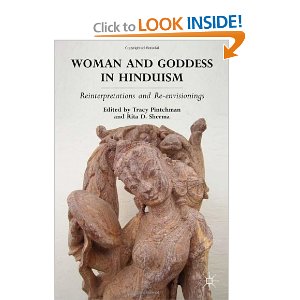Review
"The role of the female within the Hindu tradition is both varied and vigorous, as the multiple contributors to this text reveal. They bring together scholarship and sensitivity in conveying unique dimensions and valuable perceptions of that role. This book is an important read for anyone seeking to comprehend female spirituality and divinity in the Hindu context." --Ramdas Lamb, Associate Professor of Religion, University of Hawaii at Manoa
"The essays in this outstanding volume successfully avoid the common pitfalls of, on the one hand, objectifying and exoticizing the various Hindu categories and concepts with which they engage, and on the other, of deploying these same categories and concepts in a simplistic and uncritical manner. The hermeneutics of intersubjectivity that the authors skillfully apply to their materials should be a model for future work in the field of Hindu studies." --Jeffery D. Long, Associate Professor of Religion and Asian Studies, Elizabethtown College, and author of A Vision for Hinduism: Beyond Hindu Nationalism and Jainism: An Introduction
"This book skillfully addresses all things feminine in Indian traditions: goddesses, female gurus, the lives of Hindu women, and more. Includes many excellent new translations of key passages from Sanskrit litereature." --Christopher Key Chapple, Doshi Professor of Indic and Comparative Theology, Loyola Marymount University
Product Description
Offering multilayered explorations of Hindu understandings of the Feminine, both human and divine, this book emphasizes theological and activist methods and aims over historical, anthropological, and literary ones. The contributors approach the Feminine in Hindu traditions from the standpoint of intersubjective construction via a method that can be termed dialexis. Here, dialexis refers to a form of intellectual engagement “across styles” that takes as its starting point an adequate accounting of contextualized signification. The diverse ways that cultures articulate themselves are rooted in lexical choices made in historical, geographical, and cultural contexts.

No comments:
Post a Comment